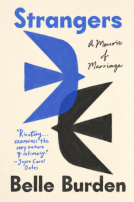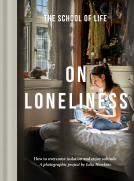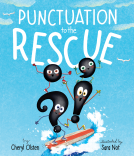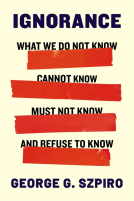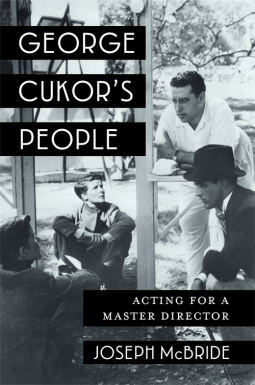
George Cukor's People
Acting for a Master Director
by Joseph McBride
This title was previously available on NetGalley and is now archived.
Send NetGalley books directly to your Kindle or Kindle app
1
To read on a Kindle or Kindle app, please add kindle@netgalley.com as an approved email address to receive files in your Amazon account. Click here for step-by-step instructions.
2
Also find your Kindle email address within your Amazon account, and enter it here.
Pub Date Jan 07 2025 | Archive Date Mar 26 2025
Talking about this book? Use #ColumbiaUP #NetGalley. More hashtag tips!
Description
In this groundbreaking, lavishly illustrated critical study, Joseph McBride provides insightful and revealing essayistic portraits of Cukor’s actors in their most memorable roles. The queer filmmaker gravitated to socially adventurous, subversively rule-breaking, audacious dreamers who are often sexually transgressive and gender fluid in ways that seem strikingly modern today. McBride shows that Cukor’s seemingly self-effacing body of work is characterized by a discreet way of channeling his feelings through his actors. He expertly cajoled actors, usually gently but sometimes with bracing harshness, to delve deeply into emotional areas they tended to keep safely hidden. Cukor’s wry wit, his keen sense of psychological and social observation, his charm and irony, and his toughness and resilience kept him active for more than five decades in Hollywood. George Cukor’s People gives him the in-depth, multifaceted examination his rich achievement deserves.
Advance Praise
"For too long, Cukor's reputation has been as a studio-bound 'woman’s director.' Au contraire, as McBride shows us in his definitive study, which combines personal reminiscences of Cukor with a masterly analysis of his films, Cukor was an adventurous and modern filmmaker—plumbing depths in stories and performances, always visually resourceful and imaginative."
—Patrick McGilligan, author of George Cukor: A Double Life
"This is one of the best books in McBride's distinguished career, and a book that Cukor has long deserved. Critics have often described Cukor as an 'actor’s director,' but nobody has done so much as McBride to analyze what the term means. He is a first-rate critic—sensitive, forthright, and eloquent."
—James Naremore, author of Some Versions of Cary Grant
"Joseph McBride is a natural resource, one whose unique approach to film analysis combines first-person witness, deep study into the context and history of the Hollywood production system, an uncanny somatic recall for the details and essence of a director’s mise-en-scène, may be easy by now to take for granted: of course, one thinks, McBride has turned his embracing attention to Cukor, as he has in the past to Welles, Ford, Lubitsch, et al. But we shouldn’t take it for granted. Here, his keen and affectionate 'actors-first' approach to his subject echoes Cukor's own elusive, sensitive style, forming a portrait made of portraits of others. As ever with McBride, you'll be driven to seek out films you’ve never even wondered about, and to reencounter others which you recall only as passing dreams."
—Jonathan Lethem, author of Brooklyn Crime Novel
"An enticing idea—examining the work of a pantheon director through the iconic performances that adorn his films—is dazzlingly manifested here by singular film historian Joseph McBride. McBride’s fresh take on George Cukor gifts us with lively looks at his work with actors both celebrated (Katharine Hepburn, Spencer Tracy, James Stewart, Cary Grant, Marilyn Monroe) and less so (Lew Ayres, Fredric March, Hattie McDaniel). And he reminds us that Cukor—too often dismissed as tasteful, amusing, but lightweight—was in fact an artist of extraordinary depth, virtuosity, and understanding."
—Julie Kirgo, essayist and film historian
Available Editions
| EDITION | Other Format |
| ISBN | 9780231210829 |
| PRICE | $40.00 (USD) |
| PAGES | 432 |
Available on NetGalley
Average rating from 15 members
Featured Reviews
George Cukor was known in Hollywood as a "woman's director", whether it was because he was homosexual or that he was sensitive to how women should be directed. Regardless, this book shows just how many successful movies he directed and how many actors and actresses liked working for him. There were a few, Clark Gable for instance, who wouldn't work with him (and had him removed from his directorial duties on "Gone With The Wind") for implied reasons that Cukor was a homosexual.
This was ultimately a very interesting book both because it shows how Mr. Cukor's directorial methods worked so well, and why so many people in Hollywood liked his work and liked working for him.
Thank you to NetGalley for the opportunity to read this book and review it.
 Reviewer 1394760
Reviewer 1394760
In George Cukor’s People, Joseph McBride takes us on a journey full of clues, details and facts about the lesser appreciated director, George Cukor’s art and craft. This is how I want my film books to be from now on; well-detailed, well-analysed and edited.
I like quite many of Cukor’s films, but I was not informed about his directing style. I was not aware of his love for his people either.
At the bottom of this academic and excellently detailed non-fiction book lies the goal to understand Cukor’s films through his directing which was a reflection of his personality.
The pictures included were relevant and interesting and added to the text well.
Readers who liked this book also liked:
Carine Laforest;
Children's Fiction
Raelene Dundon
Health, Mind & Body, Nonfiction (Adult), Parenting, Families, Relationships
